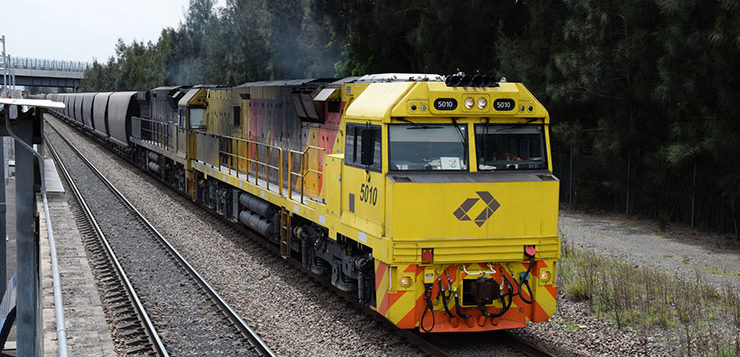A major case opening today in a Queensland court could have profound implications for climate activists around the country. Julie Macken explains.
The term, “climate crisis” is now the most commonly used descriptor when discussing global warming. Extreme weather events, firestorms, heat waves, flooding rain, loss of ice, snow and species are rightly seen within the frame of an emergent climate crisis. But if we are really witnessing a climate crisis – one with the potential to destroy our way of life and end our lives – how should we respond as a community?
This is a question being tested in Australia’s classrooms and Parliament right now and later today, in fact. The Queensland Supreme Court will be asked to decide whether, despite this crisis, it is reasonable for a large corporation to dictate how the community should be allowed to use social media to try and prevent this crisis.
The background to the case is this. Aurizon, the rail freight company formerly owned by the Government of Queensland, has been targeted by a number of individuals and communities because it plays a key role in the coal industry managing the 2,670 km Central Queensland coal network. It is also critical to Indian mining company Adani’s plans to ship coal from the proposed Carmichael mine to Abbott Point, as Adani plans to build a 200km line that will connect to Aurizon’s existing Goonyella and Newlands rail network.
Without Aurizon there is no Adani mine.
One of those groups protesting the proposed Adani mine, and Aurizon’s involvement in the expansion of the coal industry, is a small community group called FLAC – Front Line Action on Coal. Unlike the large environmental NGO’s, FLAC is still committed to supporting people who take direct action to prevent the expansion of the coal industry and they have had some serious successes of late.
So much so that Aurizon has taken the extraordinary action of getting interim orders against FLAC. Those orders include prohibiting FLAC from inciting anyone by Facebook, website, and Twitter to enter rail corridors across Aurizon’s network or interfering with any of the company’s coal trains.

On Tuesday the Supreme Court will be asked to make these interim orders permanent thus preventing FLAC from using social media to inform people and to be prohibited from going within 20 meters of the entire Queensland rail corridor. That’s a lot of rail corridor.
But there are concerns Aurizon will want more than just clear corridors. For many in the climate movement FLAC has become a touchstone as a moral force and an inclusive community that takes seriously the discipline and commitment to non-violent, safe, direct action. And this is what Aurizon is keen to shut down.
The company wants to prevent this small community group from encouraging, supporting or training anyone to take non-violent action to prevent this crisis. The less there are of these kinds of communities the better things are for large corporations like Aurizon.
These are extraordinary days climatically and politically. On Friday there was the sight of thousands of Australian school kids leaving their classrooms to demand governments – State and Federal – take the action necessary to secure their future. It was an action that happened with blessing of the Australian Senate.
Globally the divestment campaign has seen billions divested from companies involved in the fossil fuel business. While banks with a high exposure to fossil fuel companies have been forced to either rule out further investment or explain their plan to manage the escalating risk posed by stranded assets.
Then there’s the science. According to the most recent Intergovernmental Panel on Climate Change report the world is confronting the real risk of mass wildfires, food and water shortages, super storms and dying coral reefs by as soon as 2040. The last week alone in Australia has seen Sydney experience a one in 100-year rain event, while Queensland continued to burn.
These are extraordinary times and the science tells us they will get even more extreme as the global political leadership fails to materialise to prevent it. It is in this context that Aurizon’s request to the Supreme Court to gag FLAC must be viewed.
The Supreme Court must decide if Aurizon, an enormously powerful and well connected corporation, should have the power to deny a small community group the right to inform Australians how to help to prevent this climate crisis.
Obviously the people who make up FLAC have a direct interest in the outcome, but should this corporation succeed in gagging free speech to this degree, we will all be the worse for it.
Finally, Aurizon’s action is based on the assumption that if FLAC stops training concerned citizens on how to take non-violent, safe, direct action, people will stop taking action. Unfortunately what may well happen is that people continue to act to prevent a climate catastrophe, but do so without the training, discipline or principles of non-violence.
Donate To New Matilda
New Matilda is a small, independent media outlet. We survive through reader contributions, and never losing a lawsuit. If you got something from this article, giving something back helps us to continue speaking truth to power. Every little bit counts.




